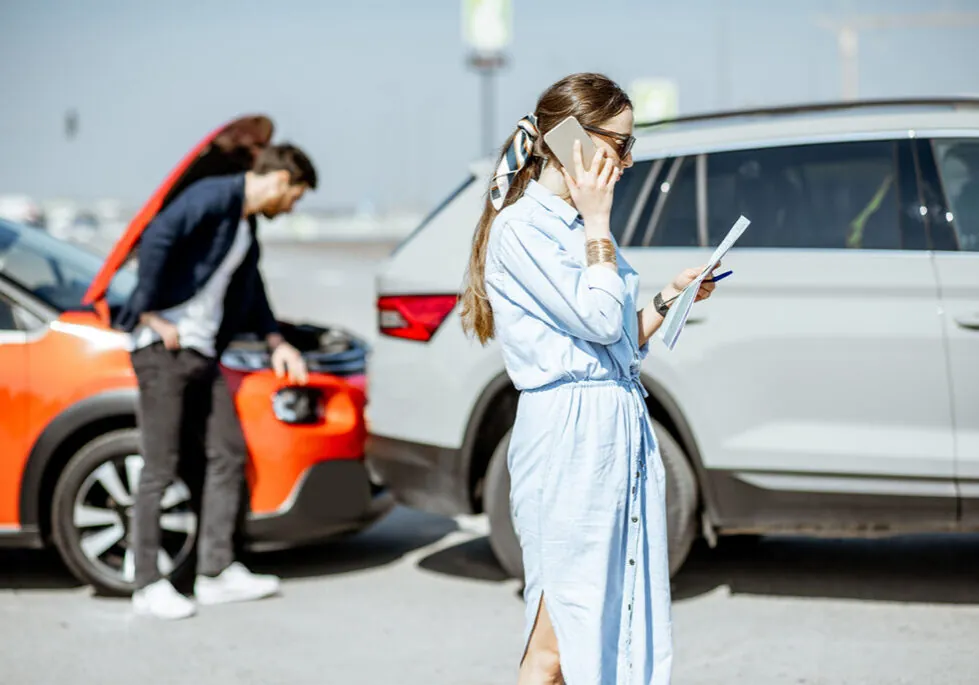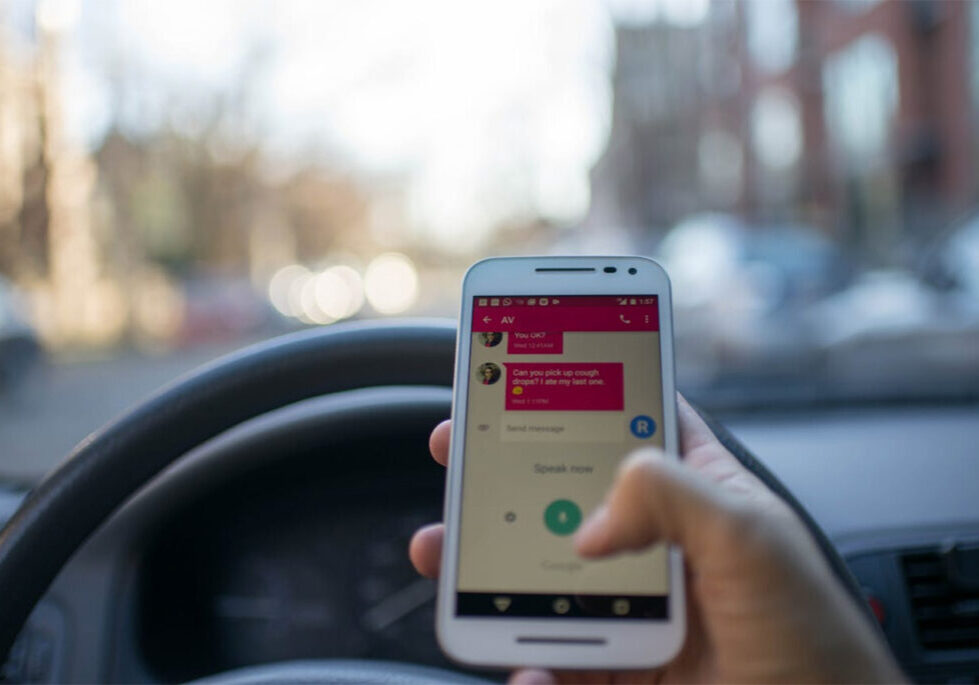With the increasing affordability and versatility of mobile devices, it’s no surprise that they have enabled social media to influence things far beyond simple ‘likes’ on Facebook. Unfortunately, the ability to stream a part of our lives to an audience has led to unfortunate, life-threatening, and sometimes fatal accidents.
What is less obvious to social media users is how their online posts and photographs can be used against them in court. From disability claims to auto accident lawsuits, our online lives have become potent weapons for attorneys seeking to limit, or even eliminate payouts to accident victims with potentially life-altering injuries.
Public social media posts can quickly spread, making it easy for lawyers to find and use against you.
In April 2018, 30-year-old David Slavitt began a “drive-time” live-stream of his commute, in which he held his smart phone in one hand, with the other on the steering wheel of his vehicle. The distraction of managing his phone while driving nearly proved fatal. Video of the accident shows Slavitt completely unaware of his immediate danger, despite the tractor-trailer that slammed into the driver’s side of his car being visible in the reflection from his sunglasses. Slavitt survived the incident, despite injuries requiring an emergency airlift to a hospital.
It was a shocking reminder that a moment’s distraction on the road could turn potentially lethal. But Slavitt’s accident also shows just how quickly our social media presence can spread beyond our control. Within days, video of the accident had spread across social media, and was soon featured on television news programs.
The existence and availability of such evidence poses serious questions when it comes to the legal fallout of such an accident. If Slavitt had filed a lawsuit, claiming that he was driving safely and paying attention to his surroundings, lawyers representing the truck driver or their company could have mounted a challenge by referencing his own video. Given his obvious distraction, Slavitt’s claims would be seriously in question.
Even the most private social media posts can leak out into the public, potentially making or breaking a case.
Social media posts can easily harm personal injury claims, and may even result in the reversal of disability benefits.
In March 2018, a judge presiding over a Pennsylvania auto accident lawsuit ordered that the plaintiff was to grant access of her social media accounts to the defendant.
In this lawsuit, the plaintiff claimed her injuries after the auto accident were severe enough to cause physical impairments. However, Instagram photos showed her engaged in physical activity, including gym exercises and shoveling snow. When the defense brought these incriminating photos up in court, the plaintiff quickly made her account private.
However, Judge David J. Williamson stated that the information that was posted while the account was still public was relevant to the defendant’s case. “Arguably,” stated Williamson, “there does not even appear to be an expectation of privacy on social media as it relates to litigation because the account holder is sharing information with others in a public or quasi-public domain.”
Using social media for legal investigations is now becoming a matter of keen interest for state and federal agencies. Among these agencies is the Social Security Administration, which has dealt with large-scale fraudulent claims, and which continuously investigates benefits claims. Access to social media would allow the SSA another avenue to investigate claimants, catch fraudulent claims early, and enable them to reverse awarded benefits.
However, there are concerns that evidence derived from social media may not present an honest picture of a person’s circumstances.
Critics claim that posts on social media can be taken out of context
In 2003, Kathleen Romano was injured when her Steelcase office chair collapsed. She sued the manufacturer, claiming that her severe back injuries left her largely bedridden. But Steelcase’s attorneys accessed Romano’s Facebook account, and found what they believed was damning evidence against her claims: photos of her smiling in front of her home. In addition, in her MySpace postings, they noted that she had regularly used smiling emoticons.
In 2010, these attorneys were granted permission by the court to delve deeper into her social media profiles and search for more evidence that would prove her injuries were never as severe as originally claimed.
As of 2015, when Slate discussed the case, Romano v. Steelcase was still in litigation.
Critics claim that the use of social media in court, without necessarily understanding the context behind a post, could lead to unfair results to accident victims. These arguments have not stopped courts from ordering more access to social media account in the course of a lawsuit, and there is little doubt that social media will continue to affect lawsuits in the foreseeable future.
If you’re seriously hurt, and are filing a personal injury or disability claim, avoid social media.
One of the surest ways to avoid undermining your case is to reduce your social media use, or stop altogether. Most attorneys recommend this, due to well-documented cases where social media has proven to be a decisive or disruptive factor, like those mentioned above. However, if the allure of Facebook is too much to overcome, then at least follow the guidelines below.
Avoid discussing accomplishments.
This sounds overly broad, and even harsh, but discussing accomplishments in a Facebook post could cast serious doubts on any personal injury claim. Whether your claim is based on physical or mental impairments, announcing accomplishments is something that can be used against you. A bowling trophy or even a high score in a videogame can be used as evidence against a claim of physical or mental disability.
Don’t discuss your injury or accident in detail.
Insurance companies, regardless of whom they represent, are looking for any information that can be used to reduce the amount of money they are paying. This means your public Facebook posts will inevitably be scrutinized.
Allaying the concerns of a parent about your auto accident by saying “It wasn’t as bad as it sounds” can come back to haunt you in court. If you must discuss something over social media, be brief, and restrict detailed discussion to private messages.
Pay attention to who is making a friend request.
If you’ve made your social media accounts private or friends only, a friend request from someone who is not a part of your social circle may very well be an investigator. Be extremely careful about adding new friends to your accounts until after your case is resolved.
Don’t check in over social media unless it is an emergency.
Social media platforms let you check in at restaurants, tourist attractions, and other destinations, offering a neat way to keep friends, family, and insurance claims investigators posted about your latest trip out of town.
If you’re filing a personal injury claim, or have claimed disability through workers comp, avoid checking in. The lawyers and insurers on the other side will not care about the context of your check in. They will try use it as evidence of your injuries not being as severe as you claim. Short of giving your loved ones notice that you’re still alive and well after an emergency, avoid checking in posts until well after your case is resolved.
Don’t post while angry, or otherwise impaired.
If you’re filing a personal injury lawsuit or making a disability claim, avoid posting angrily about the process or the people you are up against. Attacking the other side, or making angry declarations about “getting what you deserve,” can easily be turned against you. If you’re angry, impaired by medication, or have had one too many drinks, hand your phone to a friend and stay away from your social media accounts.
This blog is not meant to dispense legal advice and is not a comprehensive review of the facts, the law, this topic or cases related to the topic.



